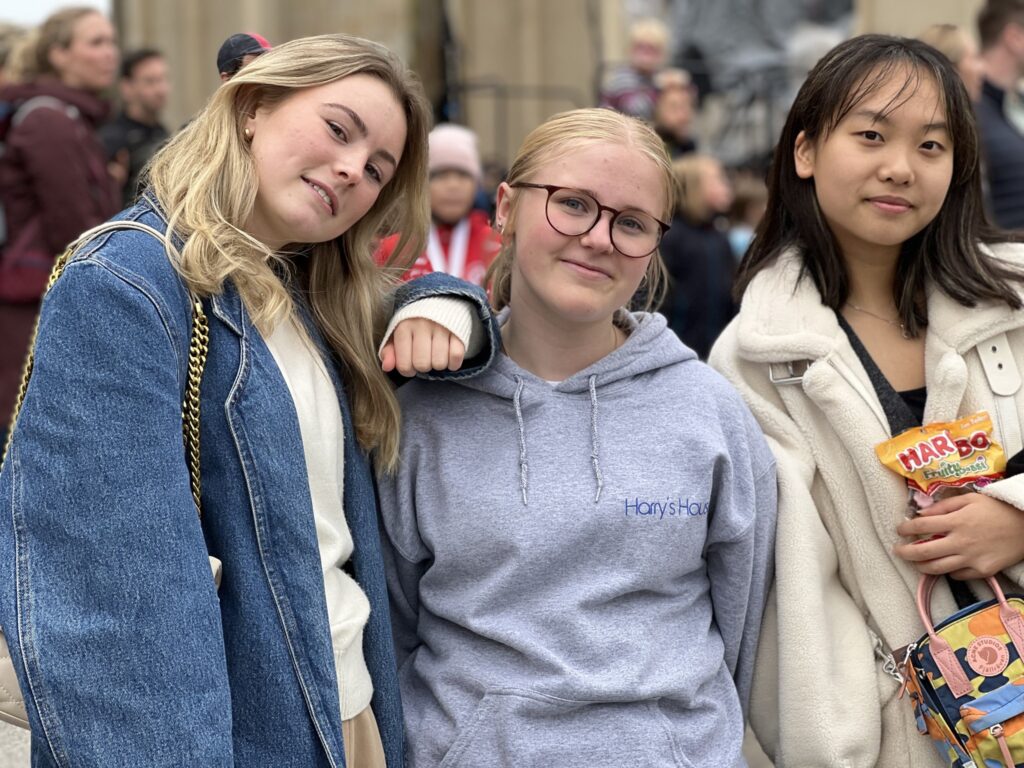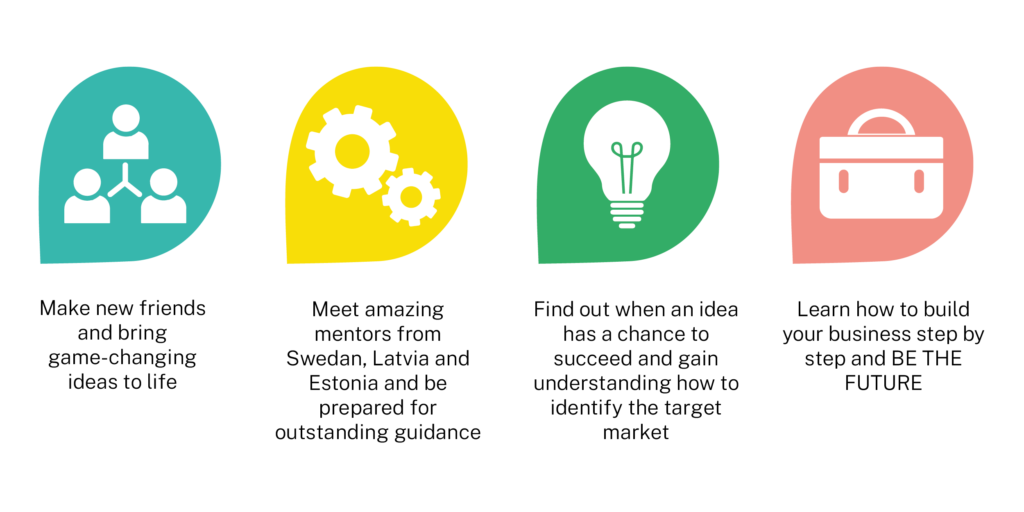
In the project we met 206 fantastic participants in three cycles. All entrepreneurs was engaged in the project for 6 months. They created international teams and ran a business and tested their idea in a real market.
We are so impressed over the result and what they achieved during this time.
A huge THANKS to all the brave participants we have met during the project!
How did it go?
In the project, we wanted to create opportunities for young female entrepreneurs to gain practical experience of running their own business. This is something that has exceeded expectations in the project. We knew that it would be a challenge for the participants to run international ideas and businesses with all that that involves. Different national rules when it comes to making money for young people, different markets and communication in their second language and different cultural contexts. But we see that this is something that we managed to create and many of the companies actually got a product or service to the market.
We also wanted the participants themselves to see that they have grown as entrepreneurs and leaders and to see that they can use their entrepreneurial skills in other contexts now and in the future. The evaluation shows that the participants have a high degree of moving forward in their development and their own awareness of their entrepreneurial ability.
99% of the participants answered that during BE the Future they have increased their knowledge about their personal entrepreneurship and business capacity.
93 % of them explain that by running a business in the project they have learned to use their entrepreneurial skills.
90% of the participants say that they are more interested in starting their own business after the project.
Project specific objectives
Objective 1: Building personal entrepreneurship and business capacity
In the evaluation after each cycle, the participants themselves have had to describe their own development and what they have learned.
99% of all participants answer yes to the question if they have, during BE the Future, increased their knowledge about their personal entrepreneurship and business capacity.
They have been able to describe in their own words what they have learned and how they themselves have developed as entrepreneurs.
Many describe lessons learned around
- how to function and work in a team, communication
- knowledge and experience about starting a business and where to seek information.
- evaluate the market
- Pitch and talking in front of people
- about themselves and their capacity
- Running av business, the practical side and the mindset you need
We are pleased to see that the purpose of the project matches very well with what the participants describe that they have developed within.
Objective 2: Enable an entrepreneurial mindset
In the project, we have focused not only on knowledge about starting your own business, but also on the participants’ own development in their personal entrepreneurship and leadership. Just as they have gained experience in finance, marketing and sales, they have also had to focus on the soft issues.
Our experience of working with entrepreneurship learning is that much is about the view of oneself and one’s own ability to create, act and influence.
93% of the participants answered that they agree in “By running a business I have learned to use my entrepreneurial skills.”
We can see that many of the participants are describing their development in their own mindset during the project.
They describe that they because of their experience in the project have gained:
- Self leadership
- How to lead
- Be myself more
- Be bold and fearless
- That is is possible to set goals and to reach them
- That starting a business takes a lot of hard work
- “that anyone that put their mind to it can be entrepreneurs”
- Dealing with stress
- “I have learned that faith, communication and a great understanding are key points to carrying a great idea”
The mindset of an entrepreneur is something that is best learned by doing it in practical life instead of theoretically. Therefore our method of learning entrepreneurship by doing entrepreneurship is a good method in this project
Objective 3: Creating a pool of interesting and feasible ideas, that complies with regional challenges of today and tomorrow.
In each cycle, the participants have had to work with idea generation and come up with business ideas. The formulation of the problem and the solutions have their origin in the UN’s 17 sustainable development goals. Here are described the challenges we face in many different areas that more or less affect the participants themselves. When coming up with ideas, they have combined the challenges of the SDGs, their own nearby everyday challenges as well as their own interests and skills.
During the kickoff, they have been given tools to develop ideas and to validate them against a market.
All ideas have been pitched and those that have had the most interest have then been further formulated and taken forward. All participants have had the opportunity to pitch their idea to the other participants and this has been a great development for the participants.
In each cycle, there have been coaches and mentors who have helped throughout the process.
Many ideas have focused around the circular economy in fashion and clothing. We also see many ideas around young people’s education and health. The challenge of young people’s mental illness has either been at the heart of the business idea or part of the idea.
When the participants themselves formulated their solutions and business ideas, we see that the motivation was great to solve the problems they are rooted in. Many times in the process, we also see that the participants realize that they have a greater effect on the solution if you collaborate with others.
Who is paying for Be the Future?
Be the Future was a project funded by The Central Baltic Programme.
The Central Baltic Programme 2014-2020 is an EU cross-border cooperation programme. Its scope is to finance high-quality projects with European Development Funds in Finland (including Åland), Estonia, Latvia and Sweden, that aim to solve common challenges together and across borders. The Programme supports projects with four priorities: Competitive economy; Sustainable use of common resources; Well-connected region; and Skilled and socially inclusive region.
Project budget: 880122.13 €
Funded by ERDF: 700627.45 €
Project duration: 01.02.2020 – 31.12.2022

